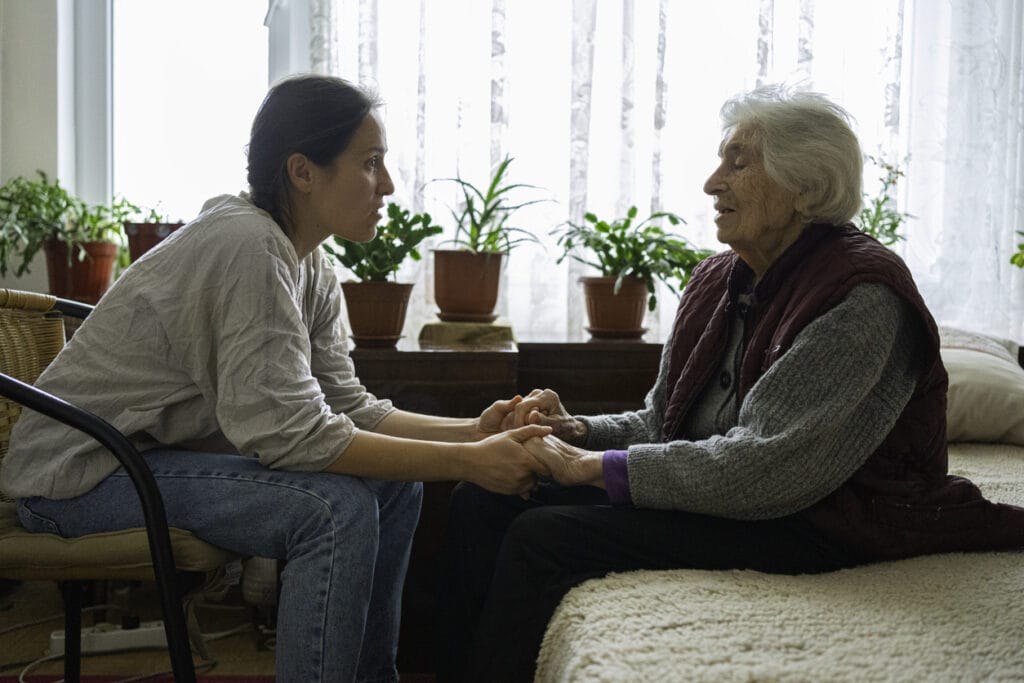Life is unpredictable, and there may come a time when your elderly loved ones are unable to make important healthcare or financial decisions for themselves. In these situations, legal documents such as living wills and power of attorney become essential. These tools ensure that their preferences regarding healthcare and financial matters are honored, even if they are no longer able to express them. Understanding and implementing these safeguards can provide peace of mind, knowing that their wishes will be respected and their needs will be properly managed.
Why Legal Documents Are Essential
Power of Attorney (POA) Explained
Why Legal Planning Is Important
Proactive legal planning is crucial for everyone, especially for family caregivers managing the care of elderly loved ones. Establishing documents like living wills and power of attorney offers clear direction on how your loved one wishes to be treated medically and financially should they become unable to make decisions for themselves. A survey by the Alzheimer's Association found that 70% of caregivers believe that having a living will or other advance directive is important, but only 43% of their loved ones actually have one. This preparation not only ensures that their preferences are honored but also helps alleviate stress and prevent conflicts among family members during already difficult times. With these legal safeguards in place, you can approach challenging situations with confidence, knowing that their needs will be met according to their wishes. This guide will explore the importance of these legal documents and the steps you can take to ensure your loved one’s wishes are accurately and legally documented.
Why Legal Documents Are Essential
Legal documents are crucial in ensuring that elderly loved ones maintain their autonomy and receive the care they desire. These tools not only provide clarity regarding their wishes but also protect them from potential conflicts and uncertainties that can arise when critical decisions need to be made. By having these legal safeguards in place, families can navigate challenging situations with confidence, ensuring that their loved ones’ preferences are respected and upheld.
- Maintaining Control Over Personal Decisions: Maintaining control over personal decisions is crucial for elderly loved ones, and legal documents play a vital role in this process. Without them, critical medical and financial choices may be left to family members or even the courts, which can jeopardize their wishes. Living wills and power of attorney forms provide clear directives, empowering individuals to retain control even when they cannot communicate their preferences.
- Avoiding Disputes and Confusion: Having specific legal documents can prevent disputes and confusion among family members. Without clear guidance, disagreements may arise regarding medical care and financial decisions, creating unnecessary stress during already difficult times. By outlining wishes in advance, families can avoid making challenging choices while navigating crises.
- Safeguarding Your Interests: Ultimately, these legal documents safeguard the interests of elderly loved ones, ensuring that their medical treatments and financial matters align with their preferences. This protection upholds their dignity, health, and financial stability during vulnerable periods, allowing family caregivers to focus on providing compassionate support.
What Is a Living Will?
A living will is an essential legal document that delineates healthcare preferences for elderly loved ones in situations where they can no longer communicate their wishes. This document is particularly vital for decisions related to life-sustaining treatments, such as resuscitation, mechanical ventilation, and artificial nutrition. By clearly outlining these choices, a living will ensures that both medical professionals and family members fully understand your loved one’s desires, providing peace of mind during difficult times.
At its core, a living will facilitates the communication of specific healthcare preferences when an individual is unable to express them. It serves as a critical guide for medical decisions, ensuring that treatment aligns with their values and desires, thereby minimizing the potential for conflict or confusion among family members and caregivers. This clarity not only honors your loved one's wishes but also supports caregivers in navigating complex healthcare situations with confidence.
Key Elements of a Living Will
A living will typically includes several key elements that help define the scope of healthcare preferences. These elements are critical for ensuring that the individual's wishes are clearly communicated and respected. Understanding these components can empower families to make informed decisions that align with their loved one's values.
- Decisions on Life-Sustaining Treatments: This includes choices about resuscitation (CPR), mechanical ventilation, and feeding tubes, allowing your loved one to specify what measures they do or do not want taken in critical situations.
- Pain Management Preferences: It’s vital to outline preferences regarding pain relief, ensuring that your loved one receives the level of comfort they desire during end-of-life care.
- Organ and Tissue Donation Instructions: A living will can also include directives about organ or tissue donation after passing, allowing for these wishes to be honored.
Why You Need a Living Will
Having a living will not only ensures that healthcare providers understand your loved one’s wishes but also alleviates the emotional burden of decision-making from family members during profoundly difficult times. This clarity provides guidance when it’s needed most, allowing caregivers and loved ones to focus on providing compassionate support without the added stress of uncertain choices. By putting a living will in place, families can navigate the complexities of healthcare decisions with confidence, knowing they are honoring the preferences of their elderly loved ones.
Power of Attorney (POA) Explained
Understanding the power of attorney (POA) is essential for family caregivers managing the affairs of their elderly loved ones. A POA is a legal document that allows someone to act on behalf of another person, particularly in situations where that individual may be unable to make decisions due to health issues. There are two primary types of POA that caregivers should be aware of:
Types of Power of Attorney
The two main types of power of attorney include:
- Healthcare Power of Attorney: This type appoints a trusted individual to make healthcare decisions on behalf of your loved one. This representative will ensure that medical care aligns with their preferences and values, providing guidance during critical moments.
- Financial Power of Attorney: This grants authority to manage financial matters, such as paying bills and handling property transactions. This ensures that all financial obligations are met, even if your loved one is unable to oversee these tasks themselves.
Choosing the Right POA Representative

Selecting the right representative for a POA is crucial. It’s important to choose someone who not only understands your loved one’s values but is also trustworthy and reliable. This person must be capable of making difficult decisions, especially in high-pressure situations, while staying true to your loved one's wishes. A survey by AARP found that 72% of adults believe that having a living will is important, but only 39% actually have one.
When POA Becomes Effective
Understanding when a POA becomes effective is equally important:
- Durable Power of Attorney: This type becomes effective immediately upon signing and continues to be valid even if your loved one becomes incapacitated. This ensures that decisions can be made without interruption.
- Springing Power of Attorney: In contrast, this type only takes effect when your loved one is declared incapacitated by a medical professional. While this can provide an added layer of control, it requires careful planning to ensure that there are no delays in decision-making during critical times.
Having a clear understanding of power of attorney is vital for family caregivers. By establishing the appropriate POA documents and selecting trustworthy representatives, caregivers can help ensure that their elderly loved ones’ wishes are respected and that their needs are met, even in challenging circumstances.
Section 4: Steps to Set Up These Legal Documents

Setting up legal documents like living wills and power of attorney is a crucial step in ensuring that elderly loved ones' wishes are respected. Here are key steps to consider when establishing these important legal safeguards:
- Consult a Legal Professional: Working with an experienced attorney is essential to ensure that living will and power of attorney documents comply with state laws. A knowledgeable attorney can guide you through the process of drafting these documents, ensuring they are legally binding and accurately reflect your loved one’s wishes. This professional insight can help clarify any questions and provide peace of mind that everything is handled correctly.
- Explore Online Resources: If visiting an attorney isn't feasible due to time or financial constraints, trusted online platforms can assist in creating these documents at a lower cost. Many of these resources offer templates and guidance for drafting living wills and power of attorney documents. However, it’s crucial to follow up with proper notarization and verification to ensure their validity. Taking this extra step helps protect your loved one’s preferences and ensures that the documents will hold up in any necessary legal situations.
- Review and Update Regularly: Regularly revisiting and updating these legal documents is vital, especially after major life events such as marriage, divorce, or significant health changes. Life circumstances can evolve, and it’s important to ensure that the decisions outlined in the documents continue to align with your loved one’s current preferences and needs. Periodic reviews can help address any changes in healthcare wishes or financial management, ensuring that the legal documents remain relevant and effective.
By taking these steps, you can confidently establish legal documents that protect the interests of elderly loved ones, providing clarity and peace of mind in times of need.
Common Misunderstandings and Challenges
When it comes to setting up essential legal documents like living wills and power of attorney, there are several common misunderstandings that can lead to challenges for families caring for elderly loved ones.
Misconception 1: “These Documents Are Only for the Elderly.”

The reality is that unexpected health crises can happen at any age. It’s important to recognize that preparing these documents early can help prevent complex legal issues down the line. By establishing clear healthcare and financial preferences now, you can ensure that your wishes are respected, regardless of when or how a medical emergency may occur. This proactive approach provides peace of mind and safeguards against uncertainty.
Misconception 2: “A Verbal Agreement with My Family Is Enough.”

Many people believe that a verbal agreement with family is sufficient to communicate their wishes. However, this is not the case. Verbal agreements lack legal weight, and only written, legally executed documents can guarantee that your preferences are followed by medical professionals and financial institutions. Relying on memory or informal conversations can lead to misunderstandings and potential conflicts during critical times.
Challenges: Difficult Conversations

Discussing end-of-life preferences and medical care can be uncomfortable and emotionally charged. However, engaging in these conversations is vital to maintaining control over your decisions and reducing uncertainty for your family during difficult times. While it may be challenging to initiate these discussions, doing so ensures that everyone involved understands the wishes and values of your elderly loved one. It can ultimately foster stronger family support and clarity when tough decisions need to be made.
By addressing these misconceptions and embracing open communication, families can navigate the complexities of legal planning with greater confidence and compassion, ensuring that the wishes of elderly loved ones are honored.
Resources for Legal Support
Navigating the legal aspects of caring for elderly loved ones can be complex, but there are valuable resources available to help family caregivers. Consulting with an elder law attorney is one of the most effective ways to ensure that living wills and power of attorney documents are set up correctly. A survey by the National Academy of Sciences, Engineering, and Medicine found that only 31% of caregivers reported having consulted with a legal professional for advice on end-of-life care planning. These specialists can provide guidance on estate planning, guardianship, and Medicaid planning, ensuring that your loved one’s needs are met and that all documents comply with state laws. Additionally, numerous non-profit organizations offer free or low-cost legal advice and resources for those with limited financial means, making it easier to access essential support.
It's also important to understand that laws governing living wills and power of attorney can vary significantly from state to state. Familiarizing yourself with your state's specific regulations is crucial for ensuring that these documents are enforceable. By utilizing resources like elder law attorneys and non-profit organizations, family caregivers can effectively manage the legal aspects of elder care, providing peace of mind that their loved one's wishes will be respected and upheld.





